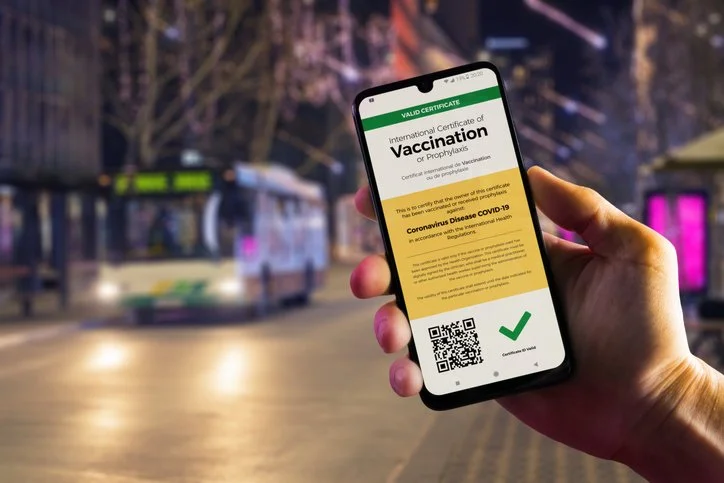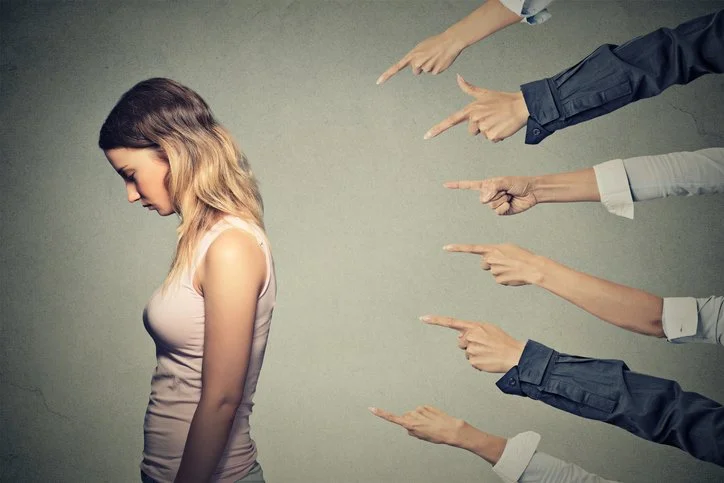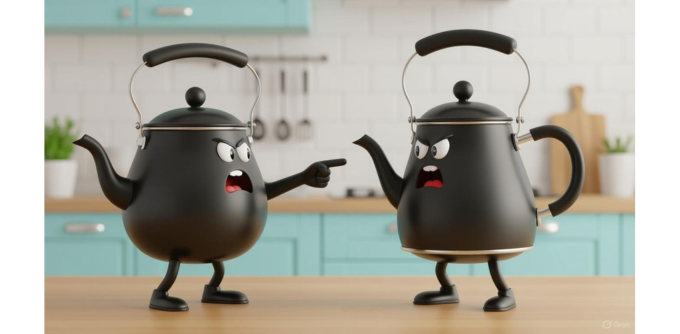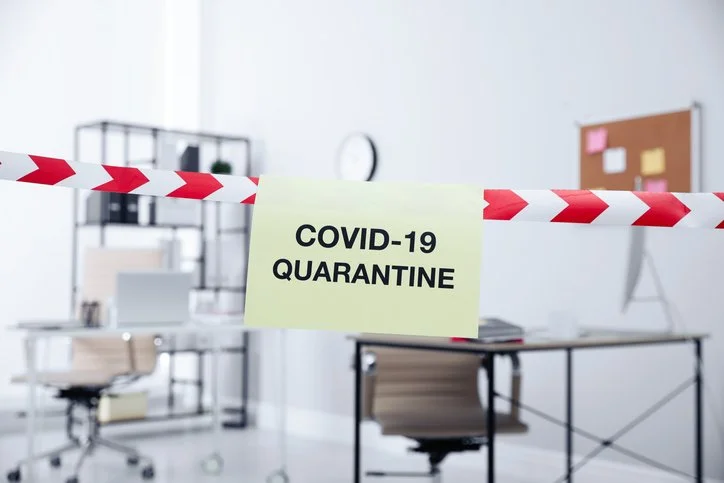A Personal Stand for Health and Autonomy
Recently, RFK Jr changed the COVID-19 vaccination mandates, reducing the government's recommendations to only those at high risk. Numerous politicians and agencies have railed against his decision. I queried Grok for a synopsis of the recent uproar. Grok seemed to support the previous mandates for more, not fewer, vaccinations, and made RFK Jr. out to be misguided. I am not sure I agree with Grok. Here is my story of navigating a polarized world where a one-size-fits-all public health mandate overshadowed my commitment to health.
At 60 years old during the COVID-19 pandemic, I was in peak health, a result of decades of disciplined lifestyle choices. I dedicate two hours daily to health-promoting routines: resistance training to maintain muscle mass, high-intensity interval training (HIIT) for cardiovascular fitness, sauna sessions for detoxification and recovery, and red light therapy for cellular health. My diet consists solely of whole foods—no processed junk—ensuring optimal nutrition. I prioritize eight hours of sleep nightly and, in warmer months, get ample non-burning sun exposure to naturally boost my vitamin D levels, which hover near 100 ng/mL without supplements. In colder months, I use UV therapy to maintain these levels. I take no medications, have no chronic ailments, and have never tested positive for COVID-19. Yet, despite this robust health profile, my choice to forgo the COVID-19 vaccine led to accusations of being a danger to society, social ostracism, and significant personal losses.
A Calculated Choice Rooted in Health
When COVID-19 emerged in 2020, I closely followed the science. Early data showed that healthy individuals like me—fit, with no comorbidities, and high vitamin D levels—faced negligible risk of severe outcomes. A 2021 New England Journal of Medicine study reported a case fatality rate of 0.002% for healthy individuals under 65, and a 2022 Pediatrics study found hospitalization rates for healthy children and adults without comorbidities were under 1%. My vitamin D levels, a known factor in immune resilience, further reduced my risk. Studies, like a 2021 Nutrients article, linked higher vitamin D levels (above 30 ng/mL) to lower COVID-19 severity, and mine were triple that threshold. I concluded that for someone like me, the vaccine's benefits were marginal compared to potential risks, such as rare side effects like myocarditis (1–2 per 100,000 doses, per CDC). The Hippocratic Oath's principle of "do no harm" and international law's emphasis on informed consent (e.g., Oviedo Convention, Article 5) supported my right to make this choice with my doctor, who agreed my health profile made vaccination unnecessary.
The Social and Professional Fallout
Despite my evidence-based decision, I faced intense backlash. In 2021, as vaccine mandates and passports rolled out, I was labeled a public health threat. President Joe Biden's 2021 statement, "This is a pandemic of the unvaccinated," stung deeply. It painted me as the problem, despite my never contracting or spreading COVID-19. My daughter lived in New York City, where vaccine passports barred me from indoor venues like restaurants or her apartment building's common areas. Missing those visits was heart-wrenching, especially knowing my health practices made me less likely to carry the virus than many vaccinated individuals who, per 2022 Lancet data, could still transmit breakthrough infections.
Professionally, I narrowly escaped disaster. My small business, which relies on client trust, faced no formal mandate, but the pressure was palpable. Had a mandate been applied, I could have lost my livelihood. Patients and friends distanced themselves when I disclosed my unvaccinated status, assuming I was reckless. One long-time patient, who was overweight and vaccinated, ended our professional relationship, citing my "irresponsibility," despite their own history of multiple COVID infections. A 2023 Nature study confirmed vaccinated individuals with risk factors like obesity were more likely to experience breakthrough cases than healthy unvaccinated individuals, yet the narrative pinned blame on me.
The Irony of Judgment
The irony was stark. I've never judged others for their health choices, whether they struggle with obesity, diabetes, or other conditions. In fact, 88 percent of Americans are deemed to have at least one marker of poor metabolism. I respect their autonomy, even when their lifestyles increase their COVID-19 risk. Yet, my choice—backed by a rigorous health regimen and scientific reasoning—was deemed selfish. Vaccinated individuals, many with risk factors like obesity (a 2021 JAMA study linked obesity to a 30% higher risk of severe COVID), were celebrated for getting two shots, while my hours of daily effort to maintain an immune system that likely protected me and others were dismissed, derided, and ridiculed. This double standard was infuriating. I wasn't anti-vaccine; I assessed that, for me, the vaccine wasn't necessary, aligning with the "informed choice" RFK Jr. now champions in his 2025 policy shifts, like removing COVID vaccine recommendations for healthy populations.
Public Health's Misstep: Overriding Autonomy
The public health response during COVID-19 prioritized collective safety over individual autonomy, often ignoring risk stratification. Early in the pandemic, uncertainty about the virus led to blanket policies—school closures, lockdowns, and vaccine mandates—that treated everyone as equally vulnerable. For healthy children, this was disproportionate, as their hospitalization risk was 0.7% (2022 Pediatrics), yet they faced school closures and mandates. Similarly, healthy adults like me were pressured into vaccination, despite low personal risk. The CDC's universal vaccine recommendations and state mandates (e.g., New York's 2021 school and workplace rules) clashed with the Hippocratic Oath's call for individualized care and international law's consent principles, as seen in the Declaration of Helsinki.
RFK Jr.'s 2025 actions—removing COVID vaccines from routine schedules for low-risk groups—echo my stance: not everyone needs the same intervention. Critics of his policies, like the AAP, argue this risks herd immunity, citing a 20% measles case increase in 2025 due to declining vaccination rates. But for healthy individuals, the calculus differs. My high vitamin D, fitness, and lack of comorbidities likely made me less infectious than vaccinated individuals with breakthrough cases, yet mandates didn't account for this. A 2022 Science study showed transmission rates from healthy individuals were lower than from high-risk groups, vaccinated or not.
The Unprecedented Mass Quarantine
Traditional public health, as discussed previously, quarantined the sick, such as those with smallpox or tuberculosis. COVID-19 flipped this, locking down the healthy en masse for the first time. By April 2020, 90% of Americans were under stay-at-home orders, per CDC data, despite only a fraction being infected. This approach, driven by early erroneous models like Imperial College's (2020), ignored that healthy people like me posed minimal risk. The consequences were profound: school closures caused learning losses (13–20% test score drops, 2023 Nature Human Behaviour), and lockdowns fueled mental health crises (25% rise in youth anxiety, 2022 JAMA Pediatrics).
For me, the inability to visit my daughter or maintain social ties added emotional strain, all for a virus I never contracted.
A Call for Nuance and Respect
My experience highlights a failure to balance individual and collective needs. Public health's one-size-fits-all approach—vaccinate everyone, lock down everyone—ignored the reality that healthy, disciplined individuals like me were not the problem. The Jacobson v. Massachusetts (1905) precedent allows mandates but requires proportionality, which was lacking when low-risk groups faced the same restrictions as high-risk ones. RFK Jr.'s push for "medical freedom" in 2025, while controversial, resonates with my belief that individuals and their doctors should weigh personal risks, as I did. Critics warn this could fragment public health, but my case shows the harm of ignoring personal health profiles.
I don't judge those who chose vaccination or struggled with health conditions. Many vaccinated friends had COVID multiple times, likely due to risk factors like obesity, yet they faced no stigma. Meanwhile, my choice—rooted in science, health, and autonomy—was vilified. Biden's "pandemic of the unvaccinated" rhetoric fueled this division, ignoring that vaccinated individuals spread the virus too (2022 Lancet). The loss of friendships, clients, and access to my daughter was a heavy price for a decision that, in hindsight, was correct for me. Thankfully, unlike thousands of people, I did not lose my job. I remain healthy, COVID-free, and committed to my regimen, but the scars of societal judgment linger.
Moving Forward
My story underscores the need for a public health approach that respects individual differences. The Hippocratic Oath and international law demand informed consent, yet COVID policies often coerced compliance. RFK Jr.'s 2025 reforms, while divisive, aim to restore choice. Vaccine participation has been on the decline, and the current resolution by RFK Jr. may continue to erode trust in vaccines broadly (e.g., 92% measles vaccination rate in 2024, per CDC). We need nuance: robust recommendations for high-risk groups, flexibility for the healthy, and an end to vilifying personal choices. My experience sparks reflection on how we balance autonomy with collective good, ensuring no one is punished for prioritizing their health in their own way.






